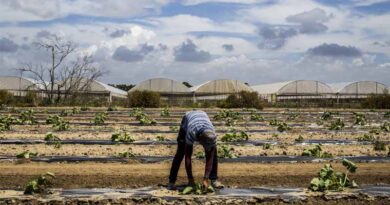USDA Contributes to the Fifth National Climate Assessment, Highlighting Impacts on Agriculture, Forests and Rural Communities and Adaptation Needs
15 November 2023, US: The U.S. Department of Agriculture (USDA) announced today its important contributions to the Fifth U.S. National Climate Assessment (NCA5) demonstrating a commitment to understanding and addressing the effects of climate change.
“Our farmers, ranchers, and forest landowners are on the front lines of climate change. USDA’s role in the NCA5 exemplifies our commitment to supporting these individuals and communities, especially those who are disproportionately affected,” said Agriculture Secretary Tom Vilsack.
The NCA5 is a congressionally mandated report that analyzes the effects of climate change on sectors and regions across the U.S. economy. The report, released on November 14, 2023 by the U.S. Global Change Research Program, was developed through a partnership with 14 federal agencies and included 58 USDA scientists. The information and analysis in the report can be used to inform decision-making, but it does not prescribe specific policies or actions.
USDA’s contributions to the NCA5 highlight the effects of climate change on agriculture, forests, food systems, historically underserved communities, and natural resources. The NCA5 emphasizes the increasingly important role of adaptation in building resilience, and the role of the land sector in mitigating greenhouse gases. It demonstrates how climate change affects the livelihoods of USDA’s stakeholders and it provides examples of how land managers are changing their operations and practices in response to changing climate conditions.
The effects of climate change are not confined to specific regions; rather, the entire nation is vulnerable to its consequences. Climate-induced changes in productivity, trade infrastructure, and livelihoods affect everyone – U.S. consumers who depend on globally integrated food and forest-product supply chains, international consumers of U.S. products, and U.S. producers whose livelihoods are connected to global food and forest-product supply chains.
USDA recognizes that agriculture and forests have pivotal roles to play in addressing climate change. The NCA5 is a comprehensive and timely evaluation of climate change’s relationships with the land sector. By understanding climate change and prioritizing innovation, land managers can be more adaptable to changing conditions and working lands can help to lessen the impacts of climate change.
For more information about the Fifth National Climate Assessment, visit www.globalchange.gov/our-work/fifth-national-climate-assessment
USDA touches the lives of all Americans each day in so many positive ways. In the Biden-Harris Administration, USDA is transforming America’s food system with a greater focus on more resilient local and regional food production, fairer markets for all producers, ensuring access to safe, healthy and nutritious food in all communities, building new markets and streams of income for farmers and producers using climate-smart food and forestry practices, making historic investments in infrastructure and clean-energy capabilities in rural America, and committing to equity across the Department by removing systemic barriers and building a workforce more representative of America.
Also Read: Boosting Millet Production: ICRISAT Joins Forces with the Assam Millet Mission
(For Latest Agriculture News & Updates, follow Krishak Jagat on Google News)















